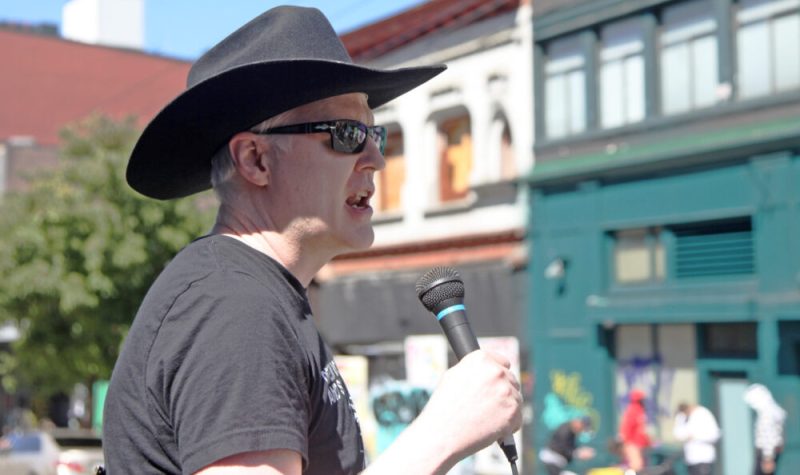By David P. Ball
---
The closure of multiple free print media outlets once popular in the Downtown Eastside (DTES), combined with residents' perspective that many large media outlets are hostile to their interests, has created a "news desert" and "vacuum of disinformation" that couldn't have come at a worse time when the pandemic struck one year ago, according to Garth Mullins.
Mullins, creator of Crackdown Podcast and a member of the B.C. Association of People on Opioid Maintenance, was asked to reflect as we approach one year since COVID-19 was declared a pandemic. He said the provincial government's initial shut down of swathes of the economy in late March 2020 "showed the government can actually take drastic measures if it wants — it could basically pull the plug on the economy."
At the time, the fact that an existing public health emergency killing far more British Columbians than COVID-19 ever has — the toxic opioid supply — hadn't yet generated such urgent actions was a glaring contradiction for Mullins. But over the year since, as the economy has reopened despite rising case counts. Mullins sees a connection between how authorities view the two emergencies
"As the pandemic went on, we learned they were willing to make a sh---y compromise between public health and capitalism," said Garth Mullins.
Mullins spoke with The Pulse on CFRO as part of a new weekly series on the show looking back over one year since the start of the COVID-19 pandemic in B.C.
One area he said has been deeply troubling during a year of the pandemic has been the lack of easy ways to communicate key public health information to residents of the Downtown Eastside, particularly since the closure of the cities two former free commuter newspapers and other free publications reducing their news coverage.
Without those popular sources of information, DTES residents have largely turned to Facebook groups for their information. Sometimes those groups contain lists and locations of vaccination clinics, bad drug alerts, and links to reputable news sources including dedicated DTES reporting by The Pulse on CFRO and The Tyee (both of which report thanks to Local Journalism Initiative funding).
But the Downtown Eastside's "news desert," he said, that has engulfed the neighbourhood comes at a great cost.
"Facebook is often full of garbage about COVID and garbage about vaccines," Mullins said. "There's a well-earned mistrust in the health system and the government, and it's true that those systems have f----d over drug users for years, so why would you trust them?
"I'm glad The Pulse is trying to fill that void, but the vacuum is much bigger than our ability to fill it — the void is so large. And the outside world of the news environment is so contaminated with alt-right bull---t and disinformation. It's been so hard to pin down information."
Here is Garth Mullins speaking with The Pulse. As a disclaimer for listeners, there is strong language used in the interview:


